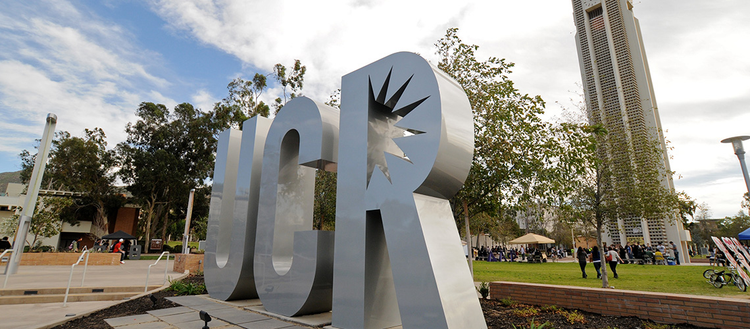Automotive and Mobility Systems Engineering
Overview
Mobility is shifting. Lead the change.
The movement of people, goods, and services is facing a revolution with the advent of the electrification of vehicles. Join the first and only mobility engineering program in the University of California system and West Coast tackling sustainable transportation solutions.
The online Master of Science in Engineering with a specialization in Automotive and Mobility Systems Engineering combines conventional and emerging areas of automotive and transportation engineering. Coursework is designed to enhance knowledge of internal combustion engines, fuels, emissions, connected and intelligent transportation systems, shared mobility, autonomous vehicles, and electric vehicles.
CALENDAR
SPRING
Application Deadline:
February 1, 2026
Upcoming Start Date:
March 30, 2026
Graduate in as few as 13 months
No residency requirement
Enjoy flexible admissions and three start dates
Why a Master’s in Automotive and Mobility Systems Engineering?
A Master of Science in Engineering is more than an upgrade to your education — it’s an investment in your future. According to Recruiter.com, the number of jobs for automotive and transportation engineers is expected to increase at a rate of 1.31% per year over the next few years, with a total of 34,750 new jobs filled by 2029.
As the field evolves and demand for experienced professionals grows, skilled automotive and transportation engineers should have the opportunity to find employment in a diverse range of areas within the industry.
A Rapidly Growing Industry
Advances in the automotive and transportation industry means greater demand for engineers with the specialized skills to lead the way in this emerging field.
Here are four reasons you should consider an Automotive and Mobility Systems Engineering concentration for your Master of Science in Engineering degree.
- Rapid electrification of vehicles is changing the prospect of automotive and transportation engineering.
- Automotive engineers can no longer develop cars without considering connectivity and autonomy.
- Transportation engineers need a deeper understanding of vehicle dynamics and control now more than ever before.
- Tomorrow’s technology requires conventional and emerging automotive and transportation engineering knowledge.
Who should choose an Automotive and Mobility Systems Engineering Master’s?
Curriculum
The online Master of Science in Engineering is a comprehensive engineering program that encompasses both leadership strategy and technical skills. The curriculum is rooted in 30 years of excellence in education and research by the College of Engineering – Center for Environmental Research and Technology (CE-CERT).
Coursework includes 16 credits of core technical and engineering classes, plus 16 credits within your specialization, helping you tailor the program to your area of expertise.
To accommodate busy professionals, the online Master of Science in Engineering does not include a required residency. Instead, students participate in 4 one-credit capstone design courses up to 4 credits throughout the program, providing a rich learning experience that comes with maximum flexibility.
The Program Curriculum:
EE246: Intelligent Transportation Systems (4)
ME248: Internal Combustion Engine (4)
Choose 2 from the following options:
ENGR200 Engineering in the Global Environment (4)
ENGR201 Technology Innovation and Strategy for Engineers (4)
ENGR202 Introduction to Systems Engineering (4)
ENGR203 Principles of Engineering Management (4)
Choose 4 from the following options:
EE266: Advanced Topics in Connected and Automated Transportation System (4)
ME117: Combustion and Energy Systems (4)
ME136: Environmental Impacts of Energy Production (4)
ME226: Vehicle Dynamics (4)
ME227: Vehicle Propulsion (4)
ME228: Introduction to Automotive Engineering (4)
CEE204: Advanced Kinetics and Reaction Engineering (4)
CEE233: Advanced Air Pollution Control and Engineering (4)
CEE235: Electrochemical Engineering (4)
CEE236: Energy: Production, Uses, Economics, and Sustainability (4)
Admission Requirements
The following criteria are considered during the admission process for the M.S. in Engineering program:
- A bachelor’s degree in Science, Technology, Engineering, or Mathematics (STEM), or related field from a regionally accredited institution
- Official transcripts
- GPA 3.0 or higher cumulative undergraduate
- TOEFL or IELTS scores (for international applicants)
- Evidence of significant professional engineering experience, if applicable
- Professional certifications, if applicable
- Reference letters
- Applicants of the bioengineering specialization are expected to have taken a course in Differential Equations
Interested in this degree?
University Details

The University of California, Riverside has been recognized by a number of academic publications for a variety of different programs and attributes. In its most recent graduate school rankings, U.S. News & World Report counted UC Riverside among the top 30 Best Online Master’s in Engineering programs.
The University of California, Riverside is regionally accredited by the Western Association of Schools and Colleges (WASC). Regional accreditation assures students that UC Riverside meets the highest standards in terms of learning opportunities and a commitment to self-improvement.
U.S. News & World Report consistently ranks the University of California, Riverside among the top 3 in the nation for social mobility, an honor that reflects our longstanding commitment to cultural, professional and geographical diversity.
